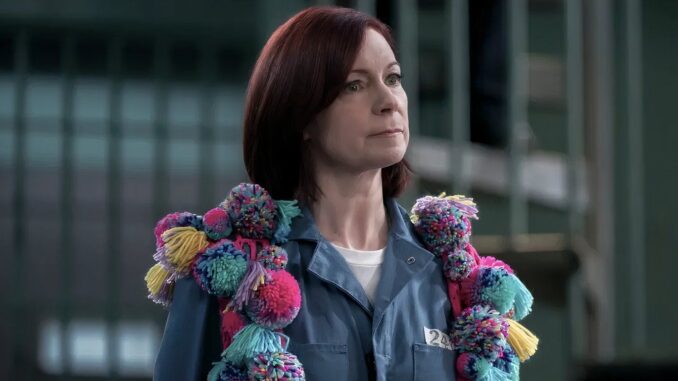
The flickering lights of a soundstage, the murmur of a crew, the crisp snap of "action" – these are the familiar beats of a world Matthew Broderick has navigated for decades. From the iconic, anachronistic charm of Ferris Bueller to the nuanced complexities of Broadway roles, Broderick has carved a singular niche, a master of understated wit and profound vulnerability. Yet, in a particular episode of Elsbeth, the procedural dramedy that brings its quirky titular character to the bustling streets of New York, a different kind of magic unfurls: Matthew Broderick acts alongside his son, James Wilkie Broderick. This isn't merely a casting novelty; it's a poignant, illustrative moment that speaks to legacy, shared passion, and the unique crucible of a parent and child meeting as professional equals on the ephemeral stage of performance.
The elder Broderick, with his recognizable cadence and a twinkle in his eye that can shift from mischievous to melancholic in an instant, brings a particular gravitas to any role. In Elsbeth, known for its intriguing guest stars and the moral ambiguities they often inhabit, Matthew Broderick's presence alone signals a character of substance. One imagines him playing someone with secrets, perhaps a lawyer, a professor, or an artist, whose veneer of respectability slowly peels away under Elsbeth Tascioni's deceptively astute gaze. It is within this carefully constructed narrative that James Wilkie Broderick steps into the frame, not just as a celebrated actor's son, but as a burgeoning performer in his own right.
The decision for a son to follow in a parent's footsteps in the notoriously fickle world of entertainment is always fraught with an unspoken tension. The "nepo baby" discourse, while often reductive, highlights the advantages of access. Yet, what it frequently overlooks is the inherent pressure, the unavoidable comparisons, and the fierce drive required to carve one's own identity from the shadow of a famous name. For James Wilkie Broderick, acting alongside his father on Elsbeth is more than just a job; it's a public declaration, a shared experience that transcends the script.
Imagine a scene where their characters, perhaps an estranged father and son, or even adversaries in a legal or ethical conundrum, stand face to face. The audience, privy to their real-life connection, would undoubtedly watch with a heightened sense of awareness. Every shared glance, every subtle shift in posture, every inherited mannerism would carry a double meaning. Would Matthew's character betray a flash of paternal pride, or a flicker of regret, even if the script demanded a cold front? Would James Wilkie's character display a youthful defiance, or a nascent echo of his father's quiet intensity? This interplay, the visible and invisible threads connecting their on-screen and off-screen relationship, is where the illustrative power truly lies.
It's a moment of intergenerational dialogue played out not in a living room, but under the unforgiving scrutiny of the camera. It’s a passing of the torch, not just symbolically, but literally, within the very craft they both pursue. For Matthew, it must be a profound experience – witnessing his son engage with the art form that has defined his life, offering perhaps unspoken guidance through a shared gaze or a subtle adjustment in timing. For James Wilkie, it’s an unparalleled masterclass, an opportunity to learn not from a mentor figure abstractly, but from the man who first taught him how to ride a bike or helped him with his homework. The vulnerability required to act, to inhabit another's skin, is amplified when that other skin is being watched by someone whose judgment, however loving, means the world.
This Elsbeth episode, therefore, becomes more than just another entry in a procedural drama. It transforms into a living tableau of artistic inheritance, a testament to the enduring power of family, and the beautiful, complex journey of a son stepping onto the same professional stage as his father. It illustrates that while talent may be nurtured and opportunities sometimes inherited, the true measure of a performer lies in the courage to step into the light, to embrace the shared legacy, and to carve out one's own indelible mark, even as a familiar twinkle in the eye reminds us of where it all began.
